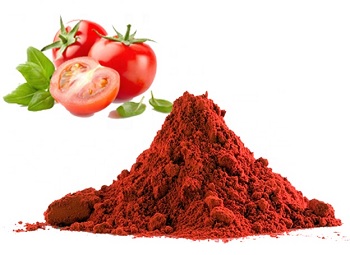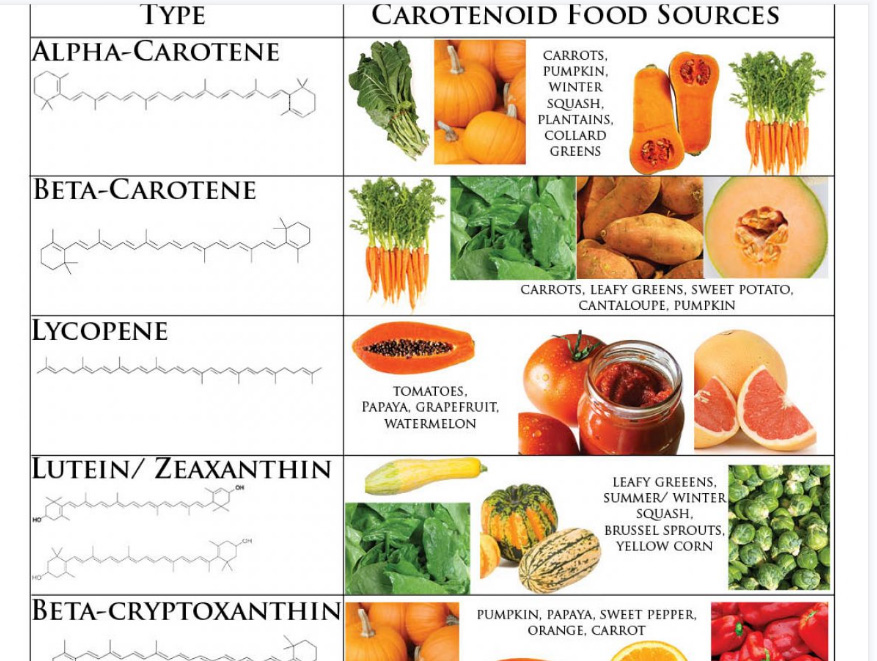Categories
- Blog (60)
Lycopene is also called Lycopene tomato powder or tomato extract. It is a carotenoid, chemical formula C40H56, which can make tomatoes (mostly in mature tomatoes) and some other fruits and vegetables discolored, is a nutrient and a natural pigment, and vitamin A (relative to vitamin A, lycopene has outstanding antioxidant properties) lycopene powder is insoluble in water but soluble in oil. In addition to the brain (the blood-brain barrier effectively protects any natural substances that are not brain substances, preventing brain damage and unnecessary physiological reactions), all parts of the body rich in fat will have more tomato red. It has a longer half-life than other vitamins, so it is usually more appropriate to supplement lycopene once a week.

Carotenoid is a natural plant substance that absorbs light and acts as an antioxidant. Interestingly, most carotenoid-rich fruits and vegetables are very low in fat, making them ideal for a healthy diet. However, carotenoids work best when paired with sources of healthy dietary fats, such as avocado, flaxseed oil, and olive oil.
Carotenoids are only produced by green plants and certain microorganisms (bacteria, fungi and lower algae). Humans and animals rely on plants as a source of these healthy organic compounds to store carotenoids in the body.

Due to the action of light and oxygen, Lycopene nutrient is relatively unstable, so pay attention to avoid light exposure when using it, especially to keep the food fresh (to avoid excessive oxygen reflection). Lycopene exists in tomatoes, watermelons, grapes In pomelo, guava, rosehip, papaya, pumpkin, and red pepper. Lycopene turns brown when exposed to iron. Also affecting lycopene are oxidants, heat, acids, and antioxidants that have the same antioxidant properties as lycopene itself.
All healthy eating advice includes fresh fruits and vegetables…but why? You’ll always hear that fruits and vegetables contain “micronutrients, vitamins, and minerals” that your body uses for optimal health. Lycopene is one of those nutrients!
Vitamin C is lost in heat, but research shows that, unlike vitamin C, ripe tomatoes are processed into tomato juice, sauces, and pastes so that your body absorbs lycopene better instead. why is that? High temperatures are used to process tomatoes into canned or bottled products, and high temperatures chemically alter lycopene, making it easier for the body to absorb. Unlike other nutrients, such as vitamin C, which are lost during cooking. We know that lycopene is easier to absorb than alpha-carotene and beta-carotene.
For itself, the easily absorbed lycopene is in the cis configuration, and the lycopene in human tissues is mostly in the cis configuration. Natural lycopene has a trans structure, but it will be converted into a cis structure after heating, and the cis structure is more easily absorbed. Lipids can promote the release and absorption of lycopene, and the body can easily absorb lipids rich in trans and cis lycopene. Therefore, heat and lipids promote the absorption of lycopene by the body.
The complex of protein and carotene, a large amount of soluble dietary fiber such as pectin, cholesterol, and intestinal diseases may interfere with the absorption of lycopene. Intestinal diseases can result in less oil absorption and a consequent decrease in the absorption of lycopene. The protein-carotene complex is an already formed molecule and cannot be absorbed again, even though such an object is rich in carotene. Soluble dietary fiber can interfere with the combination of carotene and fat. Eating with protein and iron-rich foods will also work better.
What Best nutras Do?
We are contracting to manufacture of over hundreds of plant-based ingredients. Lycopene is one of the popular ones. Then we could offer both lycopene powder and OEM lycopene supplements for your smart choices. Welcome to let us know your demand at [email protected].